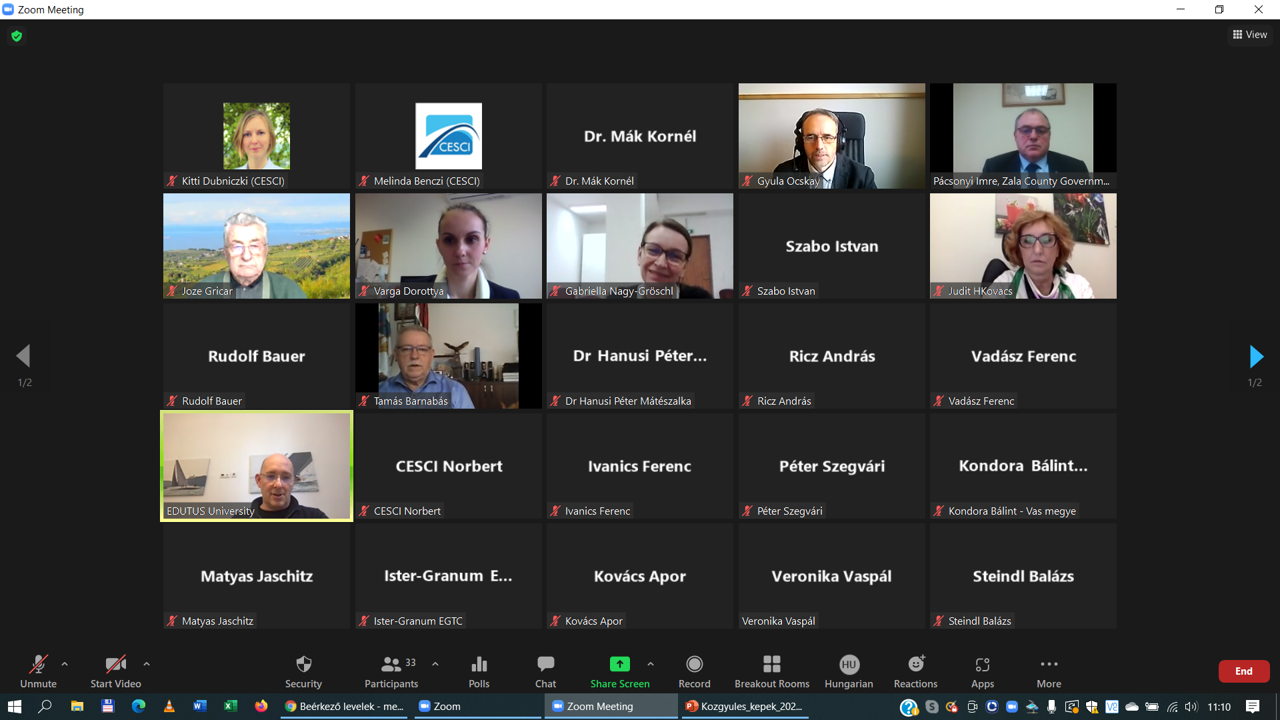Report on CESCI’s General Assembly
Other news | 01 December 2021
Other news | 01 December 2021
CESCI held an extraordinary general assembly on 29 November, online due to the pandemic emergency. A large number of private members and representatives of legal entity members attended the meeting and all votes were valid.
The extraordinary general assembly consisted of three agenda items.
The first agenda item was the ex-post endorsement of the text of the Strasbourg Declaration in the framework of the Association of European Border Regions (AEBR) by the General Assembly. The Declaration was signed by Zsuzsanna Fejes, Vice-President of CESCI, Karl-Heinz Lambertz, President of AEBR and Christian Dupessey, President of MOT on 7 October 2021 in the Council of Europe building in the presence of Andreas Kiefer, Secretary General of the ET Parliamentary Assembly. In this alliance, the partners have committed to work together in a coordinated way to put cross-border cooperation back at the heart of the EU project.
Since CESCI’s general assembly had already authorised the accession to the AEBR, but not the text of the declaration within the association, and the signing took place between two General Assemblies, the ex-post approval of the General Assembly was necessary.
The second item on the agenda was the amendment of the CESCI Statutes. With the strengthening of CESCI’s international position, the Secretary General is no longer able to manage the multi-level tasks on his own, and therefore the division of external/internal management has become an important task from the point of view of the organisation’s strategy. Thus, in addition to the position of Secretary General, the position of the Director has been created, under which the Director is responsible for the day-to-day administrative management of the organisation, while the Secretary General is responsible for strategic management. The amendments to the Statutes include the above changes, legislative amendments in the meantime, new rules prompted by the pandemic (e.g. introduction of online meetings), the introduction of interpretative amendments and the deletion of certain provisions that have become obsolete. The date of entry into force of the changes is 1 January 2022, pending registration of the amendments (Budapest High Court).
Under the agenda item “Other”, two sub-proposals were adopted. Firstly, the General Assembly voted for the admission of The Fertőtáj World Heritage Hungarian Council Association as a full member. This association is responsible for the trusteeship over the Hungarian side of the Fertő Landscape Austrian-Hungarian World Heritage Site. Furthermore, it supported the accession to the European Cross-border Monitoring Network established in 2018, initiated by the German BBSR. The main task of the network is to assess cross-border processes. By the admission of the new member and initiating the relevant international discourse, CESCI aims to play a greater role in the field of analysis within the Danube region.


 Planet Budapest (2021)
Planet Budapest (2021)